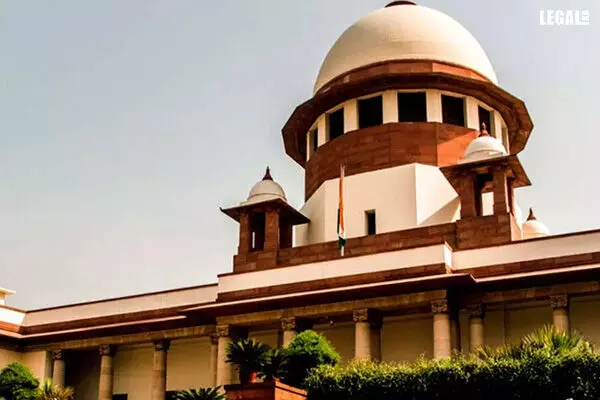- Home
- News
- Articles+
- Aerospace
- Artificial Intelligence
- Agriculture
- Alternate Dispute Resolution
- Arbitration & Mediation
- Banking and Finance
- Bankruptcy
- Book Review
- Bribery & Corruption
- Commercial Litigation
- Competition Law
- Conference Reports
- Consumer Products
- Contract
- Corporate Governance
- Corporate Law
- Covid-19
- Cryptocurrency
- Cybersecurity
- Data Protection
- Defence
- Digital Economy
- E-commerce
- Employment Law
- Energy and Natural Resources
- Entertainment and Sports Law
- Environmental Law
- Environmental, Social, and Governance
- Foreign Direct Investment
- Food and Beverage
- Gaming
- Health Care
- IBC Diaries
- In Focus
- Inclusion & Diversity
- Insurance Law
- Intellectual Property
- International Law
- IP & Tech Era
- Know the Law
- Labour Laws
- Law & Policy and Regulation
- Litigation
- Litigation Funding
- Manufacturing
- Mergers & Acquisitions
- NFTs
- Privacy
- Private Equity
- Project Finance
- Real Estate
- Risk and Compliance
- Student Corner
- Take On Board
- Tax
- Technology Media and Telecom
- Tributes
- Viewpoint
- Zoom In
- Law Firms
- In-House
- Rankings
- E-Magazine
- Legal Era TV
- Events
- Middle East
- Africa
- News
- Articles
- Aerospace
- Artificial Intelligence
- Agriculture
- Alternate Dispute Resolution
- Arbitration & Mediation
- Banking and Finance
- Bankruptcy
- Book Review
- Bribery & Corruption
- Commercial Litigation
- Competition Law
- Conference Reports
- Consumer Products
- Contract
- Corporate Governance
- Corporate Law
- Covid-19
- Cryptocurrency
- Cybersecurity
- Data Protection
- Defence
- Digital Economy
- E-commerce
- Employment Law
- Energy and Natural Resources
- Entertainment and Sports Law
- Environmental Law
- Environmental, Social, and Governance
- Foreign Direct Investment
- Food and Beverage
- Gaming
- Health Care
- IBC Diaries
- In Focus
- Inclusion & Diversity
- Insurance Law
- Intellectual Property
- International Law
- IP & Tech Era
- Know the Law
- Labour Laws
- Law & Policy and Regulation
- Litigation
- Litigation Funding
- Manufacturing
- Mergers & Acquisitions
- NFTs
- Privacy
- Private Equity
- Project Finance
- Real Estate
- Risk and Compliance
- Student Corner
- Take On Board
- Tax
- Technology Media and Telecom
- Tributes
- Viewpoint
- Zoom In
- Law Firms
- In-House
- Rankings
- E-Magazine
- Legal Era TV
- Events
- Middle East
- Africa
Supreme Court: Central Government Empowered to Specify Establishments under PF Act

Supreme Court: Central Government Empowered to Specify Establishments under PF Act
Cites the decisions of the Kerala High Court in similar cases
The Supreme Court has dismissed an appeal by an umbrella manufacturer and seller in a case related to the applicability of the Employees' Provident Funds and Miscellaneous Provisions Act, 1952, to its business.
The matter arose when the Regional Provident Fund Commissioner issued a notice to the appellant. The notice stated that the business fell under the category of 'trading and commercial establishments' and was, therefore, subject to the provisions of the PF Act.
The appellant requested a review, which was rejected. Its subsequent appeal to the appellate authority was also dismissed.
Aggrieved by the results, the appellant filed a writ petition, which was dismissed by the single-Judge bench of the Kerala High Court. The division bench also upheld the order of the single-Judge bench.
The division bench of the apex Court, comprising Justice Abhay S. Oka and Justice Sanjay Karol, referred to the ruling of the Constitutional Bench in the Mohmedalli and others vs Union of India and another case.
On reviewing Clause (a) of Sub-Section (3) of Section 1, the Court stated that in the case of the establishments that did not fall under the category of factories engaged in industries (listed in Schedule I), the Central government possessed the authority to specify such establishments or classes of establishments to be included under the PF Act.
The Judges clarified that Clause (a) of Sub-Section (3) applied to factories engaged in industries listed in Schedule I, while Clause (b) encompassed all other establishments not covered by Clause (a). Therefore, a notification under Clause (b) could be issued for factories engaged in non-scheduled industries.
The top Court observed that the appellant did not claim any exemption under Section 16 of the PF Act. And as per the noting, there was a category of 'trading and commercial establishments'.
It was undisputed that the appellant's business involved assembling and selling umbrellas at its own outlet. Thus, the establishment qualified as a commercial establishment primarily engaged in commercial activities. It fell within the category of 'trading and commercial establishments'.
Thus, while dismissing the appeals of the appellant, Justice Oka and Justice Karol ruled that there was no error in the decisions of the single Judge and division bench of the Kerala High Court.



